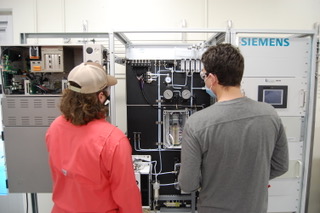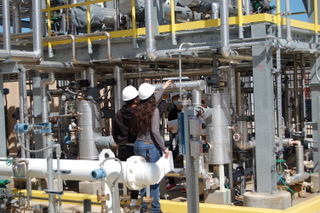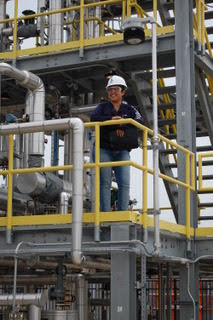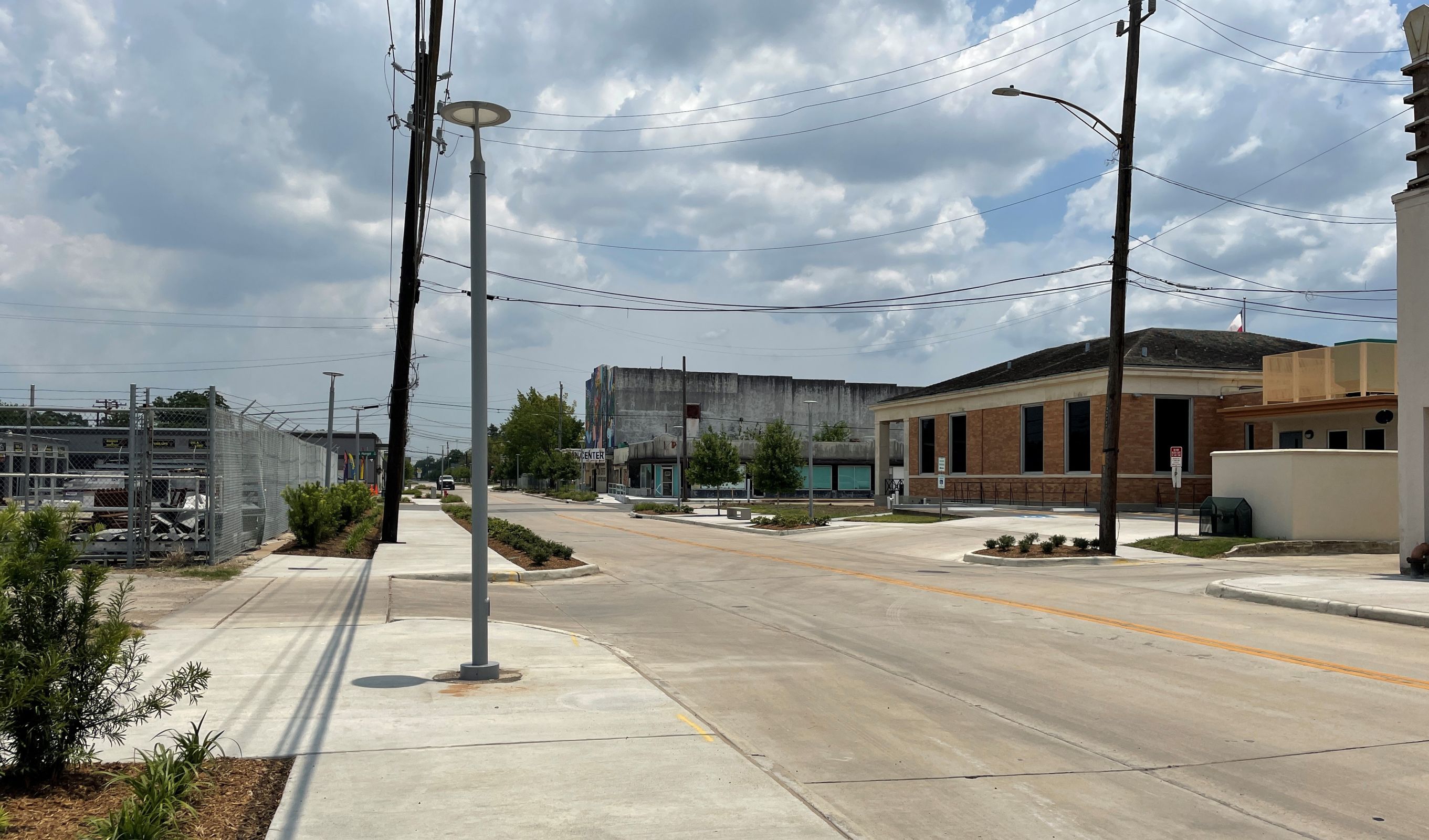Stay up to date on the latest projects, news, and happenings in our city by subscribing to our quarterly e-newsletter.
San Jacinto College leads workforce advancement in Pasadena

25 Jul 2022
News
Pasadena, TX, is located in the middle of the largest petrochemical manufacturing sector in the United States and the second-largest in the world. With 130 petrochemical plants and 90 different companies in a 14-mile radius, there are 30,000 direct jobs and 100,000 indirect jobs in the industry. As such, workforce advancement is a critical necessity in the area. San Jacinto College (San Jac) has led efforts in that regard at its various Pasadena and East Harris County campuses for the past 40 years.
San Jac`s Petrochemical, Energy and Technology program continues its reputation as the petrochemical industry’s training hub with its newest facility, the LyondellBasell Center for Petrochemical, Energy, & Technology (CPET). Jim Griffin, San Jac Associate Vice Chancellor & Senior Vice President, said the CPET culture is unlike any other college campus.
“We tell our students to show up job-ready every day,” he said. “The best interview process possible is continuously ongoing because many employers are on our campus daily.”
 Impressive facility
Impressive facility
The 151,000-square-foot, $60 million CPET opened in September 2019 as a premier petrochemical training facility. The complex includes 35 company-sponsored custom interior labs, 20 interactive classrooms, four custom workstations, advanced control rooms, a separate 8,000-square-foot process training unit and various spaces to accommodate continuous academic, community and industrial functions.
Students earn associate degrees and certificates in Electrical Technology, Environmental Health and Safety Technology, Instrumentation Technology, Nondestructive Testing, Process Technology and Welding with hands-on experiences in several different petrochemical and manufacturing disciplines.
Impressive students
Every year, Griffin said he is highly impressed with the students participating in the program. With an average age of 26, students range from 18-year-old high school graduates to 40-year-old industry workers looking to upskill. The typical student takes nine credit hours per semester and graduates with an associate degree in 2.4 years. Most gain employment as process technicians in East Harris County, but some go to West Texas, New Mexico and the Carolinas.
 “Most of our graduates do not go on to get their four-year degrees,” said Griffin. “Companies need process technicians to run their plants, so our graduates immediately move into critical roles.”
“Most of our graduates do not go on to get their four-year degrees,” said Griffin. “Companies need process technicians to run their plants, so our graduates immediately move into critical roles.”
Griffin said their average starting salary is $67,000, but many are earning $100,000 after about four years in their respective industries.
“Students can complete the 60-credit program with tuition costs less than $5,000,” said Griffin. “We are very proud of our ability to have our graduates be able to move into their careers with minimal debt load.”
Half of CPET students are incumbent workers. CPET staff works with companies to develop customized training programs in various disciplines to help incumbent workers upskill and keep current with their employer’s needs.
Critical partnerships
Industry partnerships have been critical to the CPET construction and operation since its inception. Seventy representatives from numerous industry partners contributed to the design of CPET and have continued with an advisory board to keep it current. Subject matter experts attend many labs and classes. Instructors and students often run the more extensive labs, like the 10,000-square-foot distillation tower for 12 to 24 hours with shift changes in real-world simulations.
“These are potential employers participating directly with their prospective employees,” said Griffin.
The petrochemical, energy and technology industries are constantly changing and so are the initiatives at CPET. Griffin said environmental projects like chemical recycling, carbon capture and blue hydrogen are gaining significance. Institutions like the American Petrochemical Institute (API) work with CPET on process safety, certifications and metallurgical testing. CPET is piloting a course this fall as an API Diversity, Equity and Inclusion project to be rolled out nationwide to reach students in areas not familiar with the petrochemical industry.
“CPET was built by industry for industry, so we ensure there is no gap between academia and industry needs,” said Griffin.
 Workforce advancement
Workforce advancement
As a top 5 community college in the nation and the country’s second-largest producer of process operator graduates, San Jacinto College has many other programs centered on workforce advancement. Its Maritime Program offers maritime training and deck-level coursework approved by the U.S. Coast Guard at its Maritime Technology and Training Center in nearby LaPorte. The 45,000-square-foot Center offers Texas’ only Associate of Applied Science degree in maritime transportation.
The Continuing and Professional Development Division allows current employees to participate in workforce training programs to enhance their career abilities in several industries.
San Jacinto College offers further information on these programs and the various associate degree and certificate programs, or learn why San Jac makes sense for a wide range of prospective students.
Photo credit: San Jacinto College
More Topics

Pasadena is an Anti-Inflation Haven
Jul 22 2022




